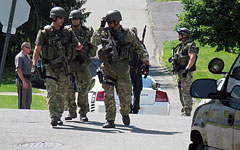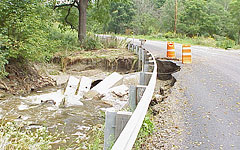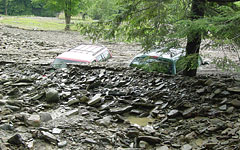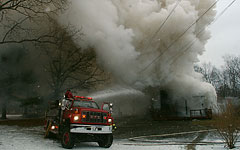 Make a plan
Make a plan
Start building your plan now.
Here are some suggestions your may want to consider:
- Keep phone lists of your key employees and customers with you, and provide copies to key staff members.
- If you have a voice mail system at your office, designate one remote number on which you can record messages for employees. Provide the number to all employees.
- Arrange for programmable call forwarding for your main business line(s). Then, if you can't get to the office, you can call in and reprogram the phones to ring elsewhere.
- If you may not be able to get to your business quickly after an emergency, leave keys and alarm code(s) with a trusted employee or friend who is closer.
- Install emergency lights that turn on when the power goes out. They are inexpensive and widely available at building supply retailers.
- Back up computer data frequently throughout the business day. Keep a backup tape off site
- Use UL-listed surge protectors and battery backup systems. They will add protection for sensitive equipment and help prevent a computer crash if the power goes out.
- Purchase a NOAA Weather Radio with a tone alert feature. Keep it on and when the warning signal sounds, listen for information about possible severe weather and protective actions to take.
- Stock a minimum supply of the goods, materials and equipment you would need for business continuity.
- Consult with your insurance agent about special precautions to take for disasters that may directly impact your business. Remember, most policies do not cover earthquake and flood damage. Protect valuable property and equipment with special riders.
- Discuss business continuity insurance with your agent. Stay put for an extended period unless otherwise advised to leave the area.
- Designate one employee from each work shift to be the safety coordinator. This person will make all decisions relating to employee and customer safety and to the safety of the business itself. Safety coordinators should know how to contact the owner or operator at all times.
- Everyone in your facility should know how to prepare for a disaster and what to do if a disaster occurs. Contact your local Red Cross chapter for specific information
 Make a plan
Make a plan





 Business Downloads
Business Downloads